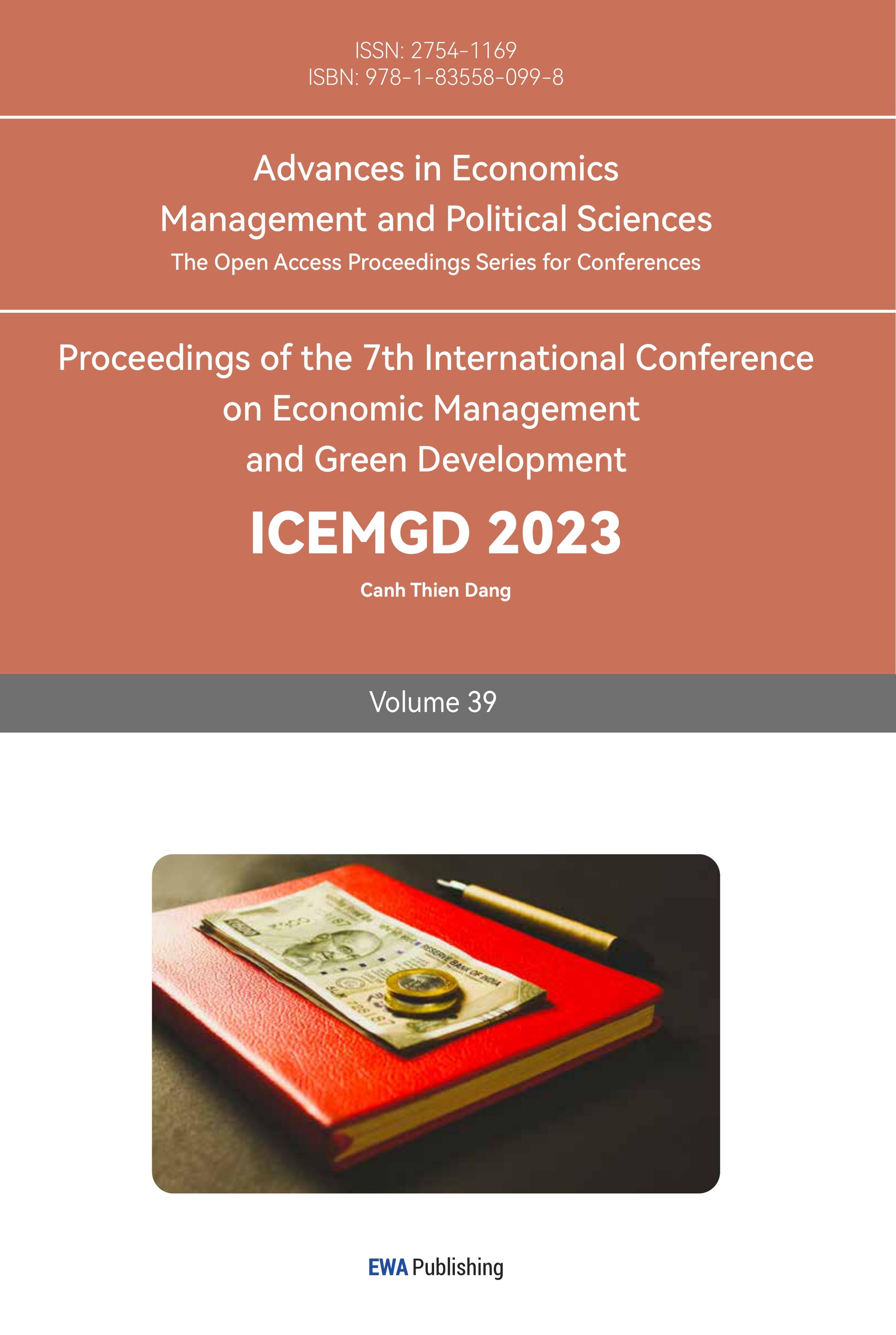References
[1]. Chye Kiang Heng. Overview of Urban Planning in Singapore [J]. World Scientific, 2021, (01), 11-12.
[2]. Jiang Ling. Experience and inspiration of urban planning and construction management in Singapore [J]. Urban Management and Technology, 2017, 19(03): 26-27.
[3]. Chen Qining. Drawing on Singapore's experience to promote institutional innovation in China's urban planning management [J]. Urban Planning, 1998(05): 14-17+59.
[4]. Singapore Urban System Report, 2022. https://www.ura.gov.sg/Corporate/Planning.
[5]. Singapore's per capita GDP over the years (1960-2021, USD), 2023. https://www.macrotrends.net/countries/SGP/singapore/gdp-per-capita.
[6]. Qu Hualin, Weng Guilan, Chai Yanwei. Singapore's urban management model and its significance[J]. Geographical Research and Development,2004(06):61-64.
[7]. Liu Mengting. Summary of Singapore's experience in ecological city planning and construction [C]//China Urban Science Research Association,Tianjin Binhai New Area People's Government.2014 (9th) Urban Development and Planning Conference Proceedings-S05 Construction and Excellent Examples of Ecological Urban Areas. 2014:3.
[8]. Mao Daqing. Urban planning in Singapore [J]. Urban and Rural Construction,2012,No.453(06):87-89.
Cite this article
Zhang,T. (2023). Urban Planning from the Economic Perspective — Taking Singapore as an Example. Advances in Economics, Management and Political Sciences,39,138-144.
Data availability
The datasets used and/or analyzed during the current study will be available from the authors upon reasonable request.
Disclaimer/Publisher's Note
The statements, opinions and data contained in all publications are solely those of the individual author(s) and contributor(s) and not of EWA Publishing and/or the editor(s). EWA Publishing and/or the editor(s) disclaim responsibility for any injury to people or property resulting from any ideas, methods, instructions or products referred to in the content.
About volume
Volume title: Proceedings of the 7th International Conference on Economic Management and Green Development
© 2024 by the author(s). Licensee EWA Publishing, Oxford, UK. This article is an open access article distributed under the terms and
conditions of the Creative Commons Attribution (CC BY) license. Authors who
publish this series agree to the following terms:
1. Authors retain copyright and grant the series right of first publication with the work simultaneously licensed under a Creative Commons
Attribution License that allows others to share the work with an acknowledgment of the work's authorship and initial publication in this
series.
2. Authors are able to enter into separate, additional contractual arrangements for the non-exclusive distribution of the series's published
version of the work (e.g., post it to an institutional repository or publish it in a book), with an acknowledgment of its initial
publication in this series.
3. Authors are permitted and encouraged to post their work online (e.g., in institutional repositories or on their website) prior to and
during the submission process, as it can lead to productive exchanges, as well as earlier and greater citation of published work (See
Open access policy for details).
References
[1]. Chye Kiang Heng. Overview of Urban Planning in Singapore [J]. World Scientific, 2021, (01), 11-12.
[2]. Jiang Ling. Experience and inspiration of urban planning and construction management in Singapore [J]. Urban Management and Technology, 2017, 19(03): 26-27.
[3]. Chen Qining. Drawing on Singapore's experience to promote institutional innovation in China's urban planning management [J]. Urban Planning, 1998(05): 14-17+59.
[4]. Singapore Urban System Report, 2022. https://www.ura.gov.sg/Corporate/Planning.
[5]. Singapore's per capita GDP over the years (1960-2021, USD), 2023. https://www.macrotrends.net/countries/SGP/singapore/gdp-per-capita.
[6]. Qu Hualin, Weng Guilan, Chai Yanwei. Singapore's urban management model and its significance[J]. Geographical Research and Development,2004(06):61-64.
[7]. Liu Mengting. Summary of Singapore's experience in ecological city planning and construction [C]//China Urban Science Research Association,Tianjin Binhai New Area People's Government.2014 (9th) Urban Development and Planning Conference Proceedings-S05 Construction and Excellent Examples of Ecological Urban Areas. 2014:3.
[8]. Mao Daqing. Urban planning in Singapore [J]. Urban and Rural Construction,2012,No.453(06):87-89.









